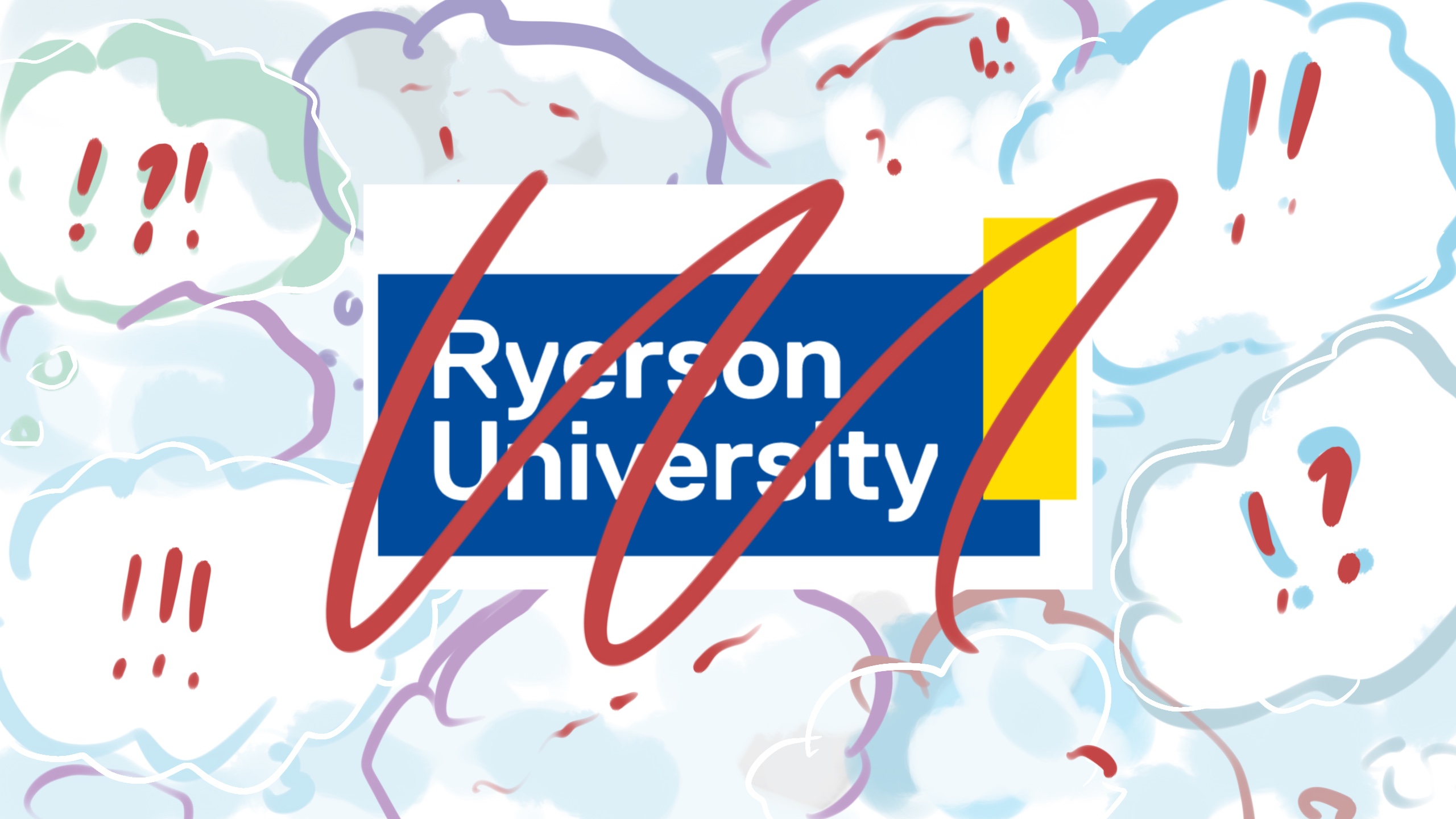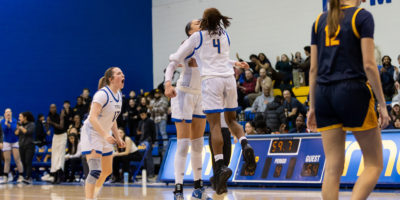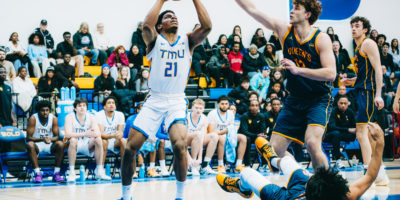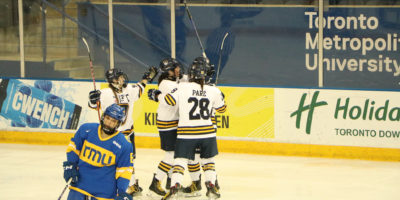By Heidi Lee
On Aug. 26, Ryerson University announced it would rename the institution, as its current namesake “can no longer be disentangled from separate schools, segregation, the genocide of Indigenous Peoples and cultural erasure.” While the decision comes after years of calls from Indigenous community members, reactions to the announcement were polarizing.
In September 2020, Ryerson introduced the Standing Strong (Mash Koh Wee Kah Pooh Win) Task Force to examine the history and colonial legacy of the school’s namesake.
At the Aug. 26 Board of Governors meeting, the Board approved the Task Force’s 22 recommendations laid out in its final report, including renaming the university, reconsidering the school’s mascot and implementing an Indigenous medicines garden, among others.
Waubgeshig Rice, a Ryerson journalism alumni who graduated in 2002, said he didn’t anticipate the decision to come so soon, but was happy to hear the announcement.
“Hopefully, it’s a good opportunity to create a more inclusive, open-minded and receptive community to Indigenous needs and Indigenous history,” said Rice, who is an Anishinaabe author originally from Wasauksing First Nation.
The report also detailed Egerton Ryerson’s colonial legacy. Indian Affairs requested that he recommend a framework for “new manual labour schools” for Indigenous children.
This resulted in the creation of two residential schools by the Colonial Office department.
Although Ryerson laid the foundations for public schools in Ontario, he also recommended creating separate schools for students who were lower-class, deaf, blind and “coloured.” He was also opposed to girls attending grammar schools at the time.
“I critique the Ryerson name and the minimal effort in the last two decades to change because I care for the community, especially the Indigenous community”
In 1983, Rice began his education at Ryerson Indian Day School, a former Indian Day School also named after Egerton Ryerson.
The school was no longer intended for assimilation by the time Rice attended, but he was aware of Ryerson’s colonial legacy as a child.
“He made some valuable contributions to society in other ways, but when you weigh what ultimately resulted from his plan for Indigenous children, those detriments far outweigh the benefits.”
Rice carried that baggage with him when he decided to attend Ryerson University—one example of many compromises Rice said Indigenous peoples have to make when considering their futures in Canada.
During his time at the university, Rice said he had a good education and made lifelong friendships.
“I don’t disavow the place and I don’t regret my experiences there,” said Rice. “I critique the Ryerson name and the minimal effort in the last two decades to change because I care for the community, especially the Indigenous community.”
He added that he believes the university is a viable institution for Indigenous peoples, even more so after the decision to change the name.
“He made valuable contributions to society in other ways, but when you weigh what ultimately resulted from his plan for Indigenous children, those detriments far outweigh the benefits”
In a Toronto Star column, Ryerson president Mohamed Lachemi wrote that examining Egerton Ryerson through a 21st century lens is challenging, but it is necessary for the school to reconcile “the past and position for the 21st century and beyond.”
“The work of the Task Force was not just an examination of one university’s namesake, but also to gain an understanding of the legacy of colonial history and how the university can recognize its responsibility to respond to local, national and international movements seeking equity and justice for all citizens,” he stated.
The university is planning to announce its name change during the 2021-22 academic year and the new name will come into effect in the following school year, Lachemi told The Eyeopener in an interview.
In 1964, the institution changed its name to Ryerson Polytechnical Institute and to Ryerson Polytechnic University in 1993. Finally, it was named Ryerson University in 2002.
Despite Ryerson members, party leaders also expressed their support.
In a tweet, NDP leader Jagmeet Singh stated his support for the name change. “This is the right decision, because it is the compassionate one,” Singh tweeted.
Conservative leader Erin O’Toole said he respects Ryerson’s decision to change its name, The Globe and Mail reported. In December 2020, O’Toole faced backlash for his residential school comment.
Shortly after the announcement of the name change, the Ryerson People’s Party of Canada (RPPC) started a petition to “save Ryerson.”
The petition, which has 558 signatures at the time of publication, asks that a referendum be held “so all alumni and student voices can be heard.”
The RPPC expressed concerns over the economic costs of renaming and the Task Force’s method of surveying community members’ opinions.
“By signing our petition, you are confirming that you stand for the Ryerson University name, preserving Ryerson University’s educational legacy and defending the employability of your degree domestically and internationally,” the petition’s description reads.
Clinton Mech, a fifth-year international economics and finance student, said he doesn’t see a point in changing the name as this “doesn’t fix what happened in the past.”
“When I think of Ryerson University, most people don’t necessarily think of Egerton Ryerson. They just see it as a university name.”
In May, a group of Indigenous students called on Ryerson community members to replace ‘Ryerson’ with an ‘X’ in their email signatures, CVs and other professional communications.
According to the students, this was a response to the university’s slow pace on renaming the school and removing Egerton Ryerson’s statue.
To show solidarity, the X University Graduate Students’ Union and the Continuing Education Students Association at X University (CESAX) removed ‘Ryerson’ from the organizations’ titles.
“But if our university administration has no problem dropping large amounts of money to do this, then why is it an issue to meet communities’ calls to action?”
CESAX vice-president equity and campaigns Steph Rychlo said the announcement is surprising, but “in a good way,” after years of advocacy by Indigenous communities at Ryerson.
Rychlo said administration always finds bureaucratic ways to delay progress and stifle organizing efforts by Indigenous advocates on campus.
CESAX published an open letter in August 2020 calling for the removal of the Egerton Ryerson statue, which was toppled and beheaded by protestors in June 2021.
Rychlo said CESAX is happy for Indigenous community members, but the work is not done yet.
“This doesn’t mean that our campus has fully committed itself to reconciliation, that our university administration has listened to all of the calls to action from the Truth and Reconciliation report.”
Rychlo said they believe arguments regarding the cost of renaming are often used to silence Indigenous peoples demanding for changes.
They said the school has rebranded in the past to bring in more revenue and student enrolment.
“But if our university administration has no problem dropping large amounts of money to do this, then why is it an issue to meet communities’ calls to action?”












Tom Thorne
Budget. I want to see the cost of this name change. I want to see the communications plan. Also what is the plan for our degrees and diplomas? Will they be changed? Will we all get a sticker in the mail to paste over the old name? What will the new name be? Has any of President Lachemi’s administrators thought any of this through? The real story here is the plan for implementing this decision. It will be expensive and may end up being divisive instead of a feel good political correctness exercise.
Tom Thorne RTA68
Ally
Changing the name is not going far enough… changing the name does not change the fact of what Ryerson was part of… The University should be shut down completely, it is the only way to fulfill reconciliation in its purest sense. Tearing a name down still leaves what it stands for, standing! … and this is not acceptable!
Eric
Bs what about the current students
Ryerson
Hahaha, do you really think people really cares about all these changes? For me, Ryerson will still be called Ryerson University.
Ally
I’d like to apologize for my previous comment. I realize I took the idea too far. Of course, this university is fine, whatever it is called. I will call it excellent.
H. Dundas
The University(Task Force) got it all wrong. How did that happen? Egerton Ryerson has had the proverbial finger pointed at him for something he did not do. He has been vilified and his reputation torn to shreds. For the record, for anyone who will listen to me, Ryerson was already dead and pushing up daisies when the Indian Affairs Minister, Duncan Campbell Scott, radically changed the concept of the residential school system originally set up by Ryerson. Scott was bound and determined the Indian would be removed from the child using his methods of harassment, brutality, and discipline. In doing so, he cut back on the operating costs for the schools and ultimately caused starvation and submission to diseases such as tuberculous, diphtheria and scarlet fever.
It is totally irresponsible to place the blame on Ryerson. The Board of Directors should be hanged and dried for accepting at face value a terribly biased report written by several far left wing people who had their own agenda. Regrettably, there has been no opportunity for open discussion during a time of pandemic lockdown. Is that a coincidence? What I do know is the proper thing to do is take a years hiatus, hire an outside, independent, unbiased firm to conduct a report on the same subject. That would only be fair.
Unfortunately, it will not happen. It is apparent the Board may have already made up its mind before receiving the report.
Tom Thorne
H. Dundas has it right. This situation calls into question Ryerson University’s academic credentials. I still say that there is no reason to change the name. One outcome of the name change committee would be not to change the name. Call the political correctness we are seeing for what it is protest propaganda. The arguments provided by the protestors have no substance. Any good historian can show that. Not to do so will irreparably alter Ryerson U’s reputation in academe. It is a dangerous game to play with the school’s reputation. President Lachemi is doing just that. Making the decision has been spread bureaucratically across many people on many committees. No leadership here, only bureaucracy and its handmaiden political correctness. This decision is really based on a lie and universities worth the name cannot be caught in a lie. And, this process is devisive and can only lead to ridicule of our academic standing.
Anon
Am i getting a new degree? I just graduated and now i have a degree that has a university’s name that would identify under a new name.
Barb
There are good people fighting this rediculous, brainless, divisive, racist, hateful, woke mob satisfying insanity https://friendsofegertonryerson.ca/